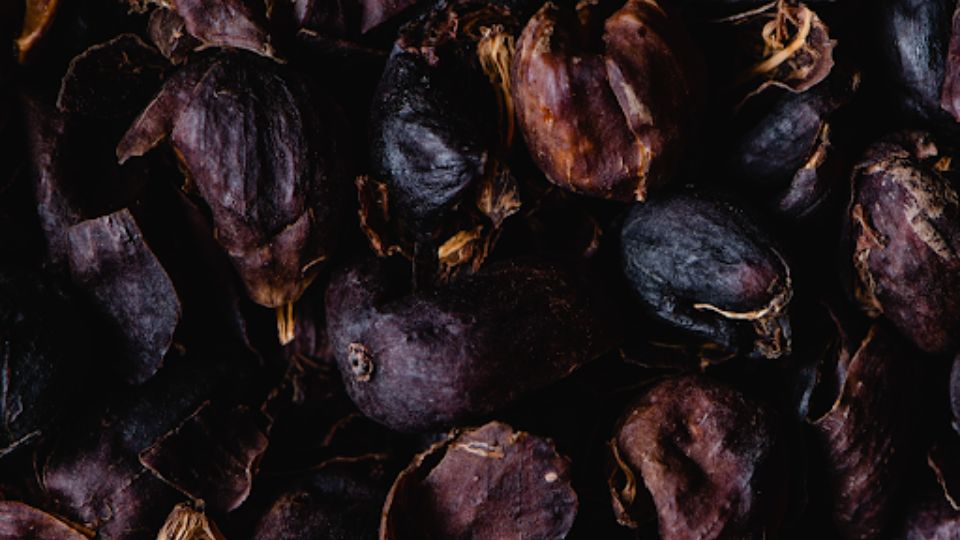If you know your coffee deeply, you know for sure that it comes from cherries grown on a plant. If you thought coffee beans just fell into containers from the sky, that’s alright. We’ll tell you the story of coffee again.
Once upon a time, there was a plant that produced cherries with seeds inside it. A goat herder in Ethiopia noticed that his goats became highly energetic after consuming these cherries.
This herder made a drink out of these cherries and observed that his focus was sharpened during his evening prayer and voila – Coffee was born!
Are you into coffee to a point where you wonder what life would be like if you became a Barista? To that we’d say, think no more! Sign up and get your Nationally Accredited Barista Training Certificate From Our Adelaide Institute.
What Is Cascara?
The complete fruits that develop on the coffee plant are called coffee cherries (also known as coffee berries). From the Arabic word Qishr, which means “peel” or “husk,” came the name cascara. Coffee connoisseurs use the coffee aroma wheel to detect fruity or roasty coffee flavours that are naturally present in the seed of the coffee plant.
Cascara used to be discarded by coffee bean manufacturers as a waste product, and they would either compost it or throw it away in a landfill or a canal.
Finding a practical use for coffee cherries rather than throwing them out will undoubtedly benefit the environment.
In an effort to explore the coffee plant’s wider possibilities, as well as reduce waste, finding ways to use cascara has become a recent interest for those who previously only focused on the inside of the coffee fruit.
The beans used in “normal” coffee—the most widely consumed variety of the beverage we all know and adore—are the seeds of this cherry.
The cherry fruit is typically discarded after the pulp has been taken, the seeds have been removed for roasting, and the seeds have frequently been utilised in compost or fertiliser.
However, when news gets out about a different application for them in cherry coffee, they assume a life of their own.
What Is Cascara Known For?
Contrary to Cascara Sagrada, a natural laxative derived from tree bark, coffee plant cascara contains a high concentration of phenolic chemicals, which are known for their anti-inflammatory, anti-carcinogenic, and antioxidant qualities.
The dried bark of the shrub Cascara Sagrada serves as a natural laxative (Cascara tea won’t be of any use here). Coffee husks can be used to make a warming herbal tea known as a fruit tisane and referred to as “coffee cherry tea” or “cascara tea.”
What is cascara solving, then? Some individuals think it can treat liver issues, gallstones, and cancer in addition to its long history of use as a natural laxative to relieve constipation, but there is currently insufficient data to support these claims.
Where Is Cascara Produced?
While Yemen and Ethiopia have traditionally produced cascara, Bolivian and El Salvadoran coffee farmers have recently started selling and exporting cascara as well (Ciummo).
Is Cascara Safe To Consume?
Cascara is generally safe and well tolerated, but when used in high doses for longer than advised periods, it can lead to side consequences, including clinically evident liver injury (Library of Medicine).
What Does Cascara Taste Like?
Even though it originates from coffee plants in literal terms, cascara doesn’t taste like coffee. It has a floral honey and flower aroma similar to that of a fruity tea. It depends also on the coffee cherry variety, where the coffee is harvested. Take a sip that will surprise you.
Cascara can sometimes be found at intersections between coffee and tea, but the beverage tastes nothing like coffee. Cascara coffee cherry tea has a pleasant fruity flavour containing aromas of rose hip, hibiscus, cherry, red current, mangos or tobaccos and is sometimes considered to contain.
Does Cascara Tea Have Caffeine?
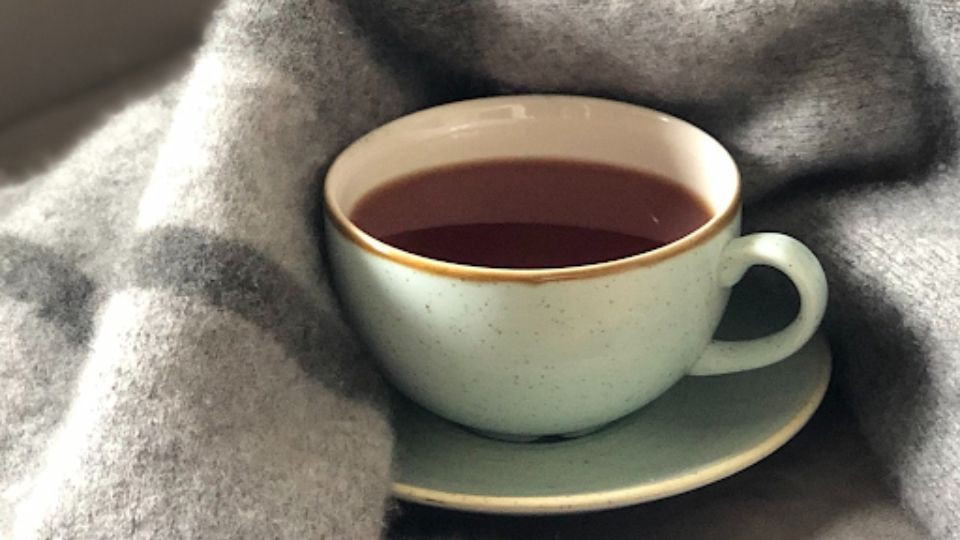
Cascara comes from the coffee plant, although it only contains around 25% as much caffeine as the ordinary brew.
No matter how long the tea is steeped for, research discovered that cascara tea has about 25 mg of caffeine per cup (as opposed to 80 mg in a cup of coffee).
Cascara compares best to green tea, which similarly has about 25mg of caffeine per cup, as opposed to black tea, which has about 50mg of caffeine per cup.
All About Coffee Cherry Tea
Coffee cherry husks are used to make coffee cherry tea. Coffee production leaves behind rich and fragrant coffee cherry husks. The majority of farms currently compost or use the coffee cherry husks as fertiliser on the farm.
How To Make Tea From Coffee Cherries?
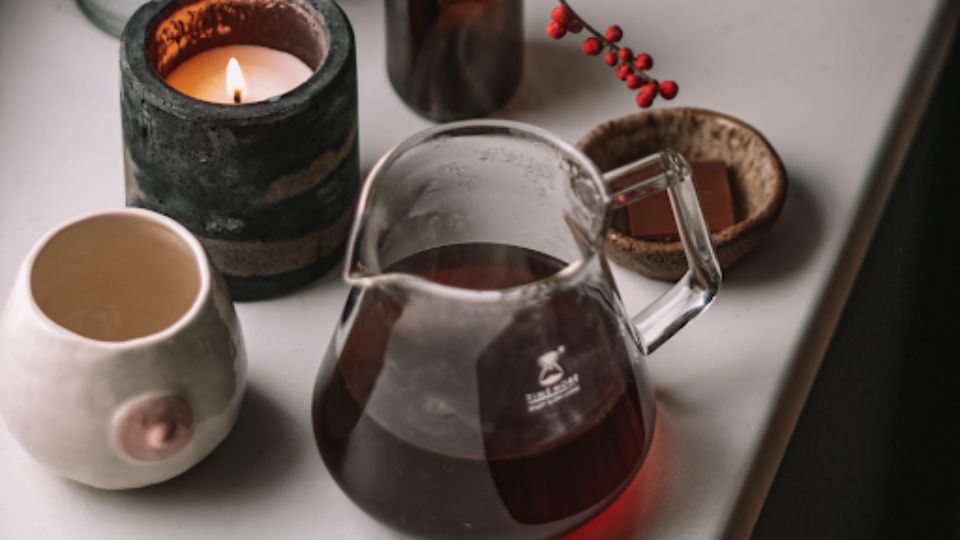
Coffee cherry tea can be enjoyed as a hot or cold beverage, depending on how you make it. In some nations of the Middle East and Africa, this beverage consumed widely today. Because it is less expensive to produce than dried, roasted coffee beans, it is frequently consumed more frequently than coffee.
You’ll need the following equipment to make coffee cherry tea (cascara tea):
- Strainer
- Glass Container
- Kettle
- Timer
- 9g to 18g of Cascara
- 220ml – 250ml of water
Step 1 – Bring your water to a boil
Step 2 – Your ratio of cascara to water should be 18g for 250 ml for ideal flavour
Step 3 – Brew the cascara in water for about 3 to 5 minutes
Step 4 – Your final step is straining your tea for best results
You can also enjoy the cold version of cascara tea by putting your cascara in water and leaving it in the fridge for 24 hours until its ready.
Does Cascara Have Health Benefits?

Yes. Cascara has health benefits. The dried coffee pods, or cascara, are rich in vitamins, minerals, vital amino acids, essential fatty acids, proteins, and healthy bioactive substances, including polyphenols and caffeine.
The 4 Health Benefits Of Cascara Tea Include:
- It Helps The Digestive System – Because it has colon-cleansing qualities, cascara tea benefits the digestive tract by easing constipation. It also aids in the eradication of gastrointestinal issues by enhancing digestion and eradicating conditions like gallstones.
- It Has Antioxidant Properties – Additionally loaded with antioxidants, like a herbal tea, this tea has the strength to help prevent and treat major ailments like cancer.
- It Reduces Stress – Additionally, it can aid in stress reduction, improved sleep quality, and improved brain function.
- Good For The Brain – The tea that is derived from the fruit of the coffee plant boosts memory and improves clarity.
Who Knew You Could Make Tea From Coffee Beans?
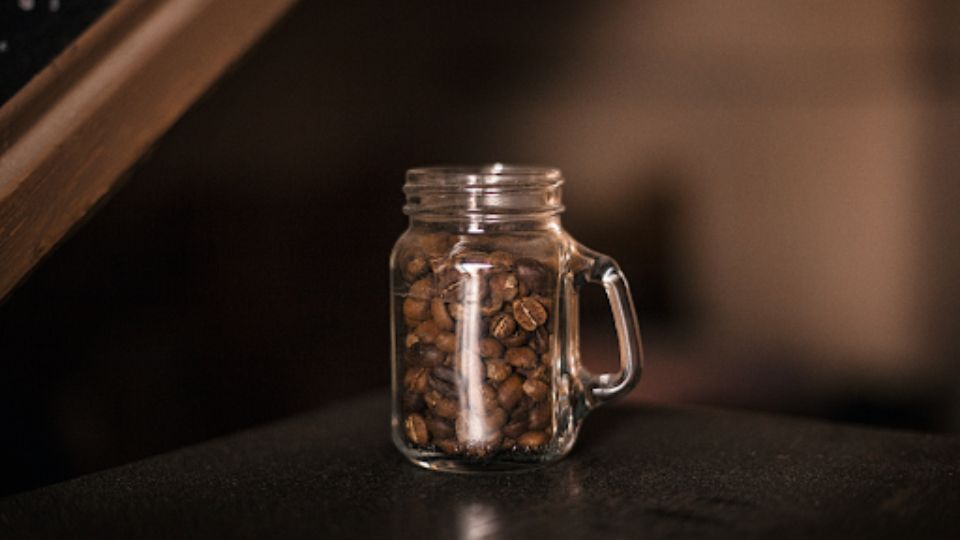
Coffee has many associations with beans and coffee. And it doesn’t take long to get enough of them. Is coffee actually useful in making cascaras? Want to learn more? This will be your best answer.
Cascara came out of the Spanish “cáscaro” which means ” husk “. It describes the dried skin of a bean, or a coffee berry. They are surrounded by two seeds, recognizable to us as coffees that our friends love. How about a cascara? Before then, it is considered waste from the coffeemaking process.
What Is Cascara To The Environment?
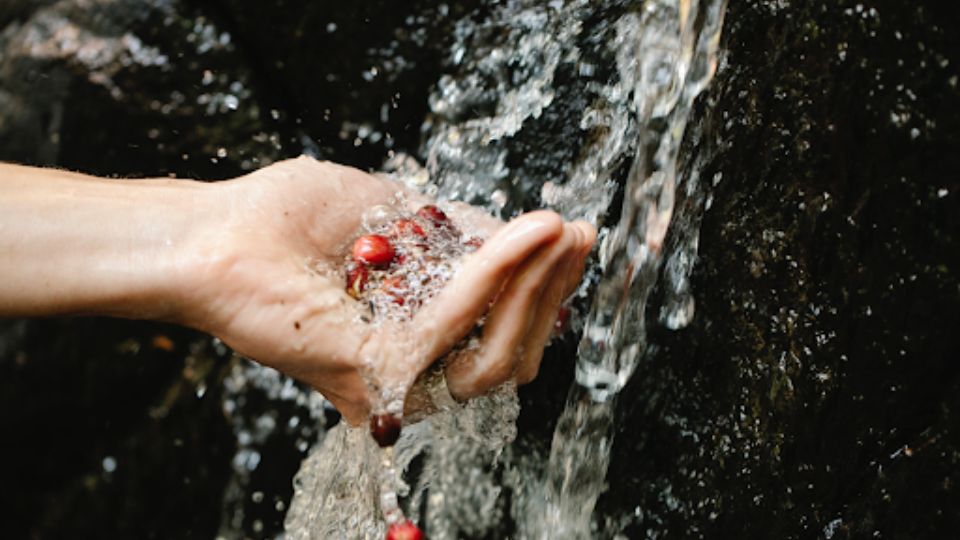
Crop production and arable areas are at risk from rising temperatures. Coffee production generates CO2 emissions, but unused coffee by-products are a lesser-known environmental problem that the sector faces.
Cascara is frequently composted and utilised as a converted fertiliser or biofuel, claims Paul Evers, the CEO and co-founder of Riff.
Evers claimed that this only occurs around 30% of the time, with the remaining 70% of cascara being thrown away.
The coffee industry alone gathered 120 billion pounds of coffee berries in the 2018–2019 growing season, leaving behind approximately 100 billion pounds of by-product, of which 58 percent was cascara.
That 58 billion pounds may produce 14.2 million metric tonnes of CO2 if recycled or upcycled improperly, which is the same as 35 billion miles travelled by a car and nearly 1.4 million times around the world.
A little amount of cascara gets composted, but the majority is dumped in landfills or waterways, degrading the environment and reducing biodiversity.
How Is Cascara Beneficial To Farmers?
Making the most of cascara offers the chance to turn waste into money. Farmers can improve their income with little investment by developing a mass market for cascara because the so-called “waste” only costs $.03 per pound.
Conclusion
Cascara is the new promising alternative to many herbal teas with its health benefits. Contrary to cascara sagrada, this coffee cherry tea that is made from the remnants of coffee cherry husks has the potential to change the world. With the right investments and upcycling, the coffee industry offers a unique chance to achieve carbon neutrality and zero waste. Smallholder farmers stand to gain significantly from this since their income would rise as the cascara market expands without them having to grow more crop.
References
- Ciummo, Brenna. “What Is Cascara? An Overview of Coffee Cherry Tea.” Fresh Cup Magazine, 20 May 2014,www.freshcup.com. Accessed 27 Apr. 2023.
- Library of Medicine, National . “Cascara.” PubMed, National Institute of Diabetes and Digestive and Kidney Diseases, 2012,www.ncbi.nlm.nih.gov. Accessed 27 Apr. 2023.
- Pack, The Roasters. “What Is Cascara? Uses, Health Benefits, Caffeine Content and More.” The Roasters Pack,www.roasterspack.com. Accessed 28 Apr. 2023.
- “Why Cascara Is Good for the Planet, Coffee Farmers, & You.” Good Good Good, 4 Aug. 2022, www.goodgoodgood.co/articles/cascara. Accessed 28 Apr. 2023.

